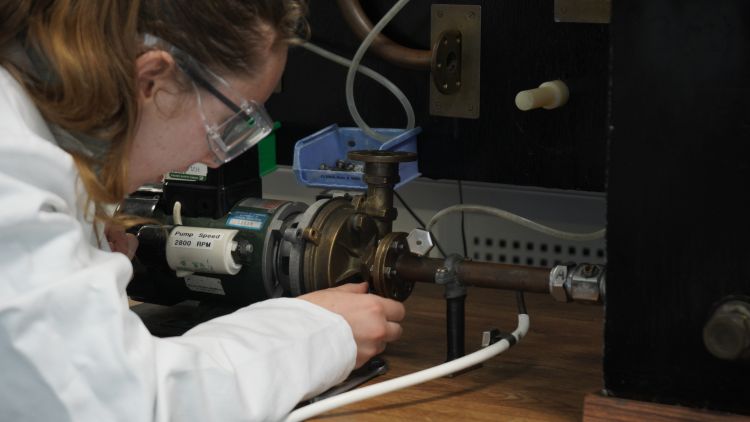The information below is for entry in 2025, or deferred entry in 2026.

Entry Details
- Typical intake per year: 2-3
- Minimum offer level
A Level: A*A*A
IB: 41-42 points with 776 at Higher Level - Subject requirements
A Level: Mathematics and Chemistry, and one of Biology, Further Mathematics, Physics
IB: Higher Level Mathematics: Analysis and Approaches and Chemistry, and one of Biology, Physics - Useful preparation: Further Mathematics is encouraged. If Further Mathematics is unavailable or if you have recognised its desirability too late, we would advise you to do as much additional pure maths and mechanics as possible, e.g. by studying advanced material.
- Admissions assessment: Yes, required at Queens' - a Pre-Registration Assessment
- Submitted work: No, not required at Queens'
Course Details
Chemical engineers and biotechnologists use fundamental science to solve real-world problems, developing environmentally and economically sustainable methods to make chemical and biological products, and tackling global challenges in sustainability, energy and healthcare. The Cambridge course is designed to integrate the teaching of the scientific principles that underpin chemical engineering and biotechnology, and their application to real-world systems.
The course is accredited by the Institution of Chemical Engineers, meaning that after graduation you can apply for Chartered Engineer status once you have the appropriate period of relevant experience, without taking further exams.
Information about the course structure, departmental teaching arrangements, offered topics and options can be found on the University of Cambridge website: Chemical Engineering and Biotechnology Course Outline
Chemical Engineering and Biotechnology at Queens’
Chemical Engineering and Biotechnology students at Queens' are normally able to enjoy an annual dinner as well as several other social events throughout the academic year, including a termly tea and cake afternoon where students can catch up with others and with their Director of Studies.
Gap years
Queens' has an open attitude to applications from final-year school candidates intending to take a gap year to gain industrial experience, and from post-qualification applicants embarking on a gap year. Potential Chemical and Biochemical Engineers are encouraged to obtain industrial sponsorship to gain relevant experience before starting at Cambridge.
I chose Queens' for Chemical Engineering because I knew that in a smaller course, I would get to meet people from all sorts of courses, and feel like part of separate subject and College communities! Additionally, Queens' shares a Director of Studies with Magdalene so I got the opportunity to explore other Colleges, and my Director of Studies is incredibly supportive. Chemical Engineering allows you to explore many different science disciplines, so being where Queens' is you aren't too far from any of the faculties. There are also incredible spaces to study, both inside, outside, quiet and collaborative!
Anna (Chemical Engineering via Natural Sciences, course replaced with Chemical Engineering and Biotechnology from 2023)
Academic and Teaching Staff
 Dr Zachariah Bond, see also Dr Zachariah Bond | Department of Chemical Engineering and Biotechnology
Dr Zachariah Bond, see also Dr Zachariah Bond | Department of Chemical Engineering and Biotechnology Dr Devon Indar, see also Dr Devon Indar | Department of Chemical Engineering and Biotechnology
Dr Devon Indar, see also Dr Devon Indar | Department of Chemical Engineering and Biotechnology
 Dr Mark Williamson
Dr Mark Williamson